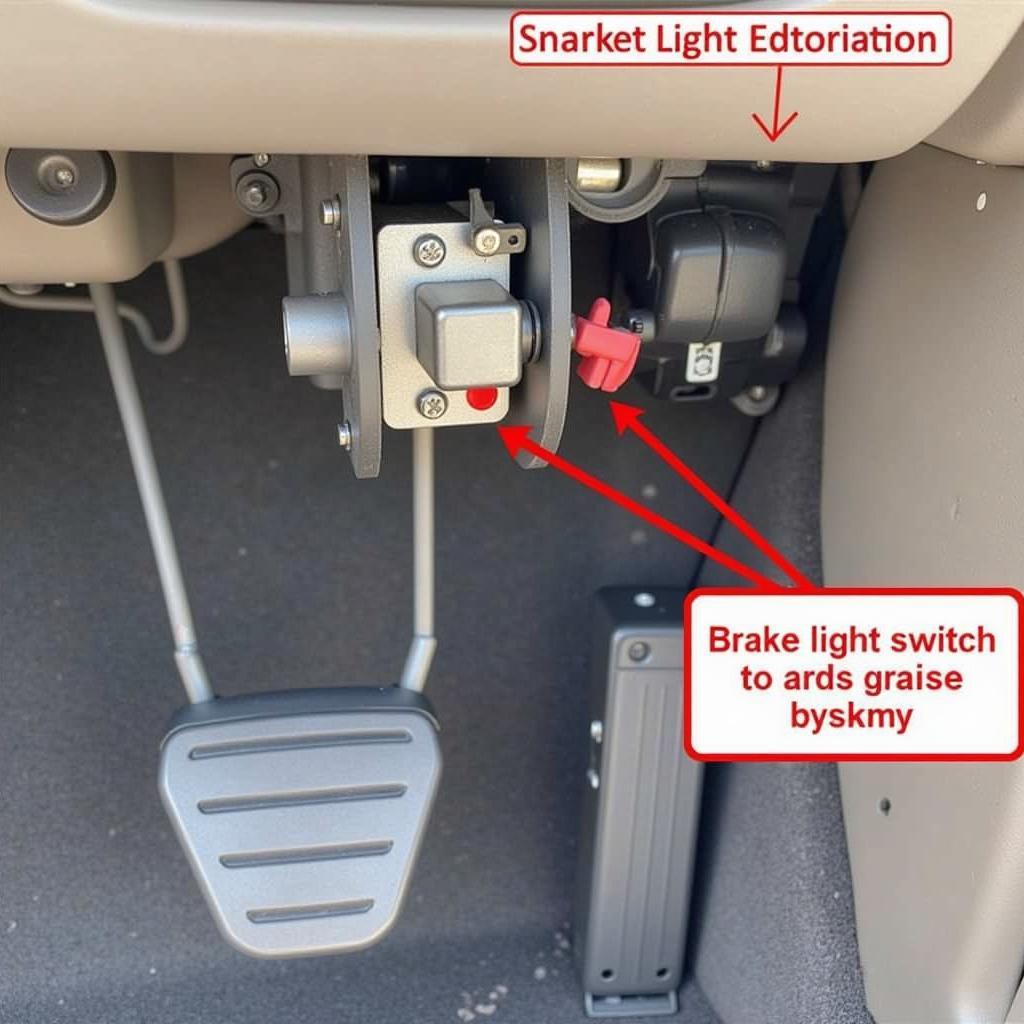A dead car battery can be a frustrating experience, leaving you stranded and unsure of what to do. Recognizing the signs of a dead battery is crucial for preventing such situations. This guide will cover everything you need to know about identifying a dead battery, from the most common indicators to less obvious symptoms, empowering you to address the issue proactively.
Common Signs Your Car Battery is Dying
Several telltale signs indicate a failing car battery. Recognizing these early symptoms can save you time, money, and a lot of hassle. These common signs include:
- Slow Engine Crank: One of the first and most noticeable signs of a dead battery is a slow engine crank. When you turn the key, the engine struggles to turn over, often accompanied by a clicking sound.
- Dim Headlights: If your headlights appear dimmer than usual, especially when the engine isn’t running, it could signal a weakening battery. This is because the battery is struggling to provide sufficient power.
- Dashboard Warning Lights: Modern cars often display a battery warning light on the dashboard when there’s an issue with the charging system or the battery itself.
- Clicking Sound When Turning the Key: This clicking sound, often originating from the starter, usually indicates the battery doesn’t have enough power to engage the starter motor.
- Electrical Malfunctions: A failing battery can cause erratic behavior in other electrical components, such as the radio, power windows, and interior lights.
Similar to signs that my car battery is dead, these signs are critical indicators of a potential battery problem.
Less Obvious Signs of a Dead Car Battery
While the common signs are relatively easy to spot, some less obvious indicators can also point to a dead battery. These include:
- Swollen Battery Case: Extreme temperatures can cause the battery case to swell or crack. This indicates internal damage and requires immediate replacement.
- Bad Smell: A rotten egg smell near the battery suggests a leak or damage, requiring professional inspection.
- Old Age: Car batteries typically last between three and five years. If your battery is nearing or exceeding this lifespan, it’s a good idea to have it tested and potentially replaced.
Understanding these less obvious signs can be as crucial as knowing the more common ones, helping you avoid unexpected breakdowns. This shares similarities with signs of dead battery vs starter, where distinguishing between battery and starter issues is key.
What to Do if Your Car Battery is Dead
If you suspect your car battery is dead, several options are available:
- Jump-Starting: Using jumper cables and another vehicle can provide a temporary boost to start your car.
- Battery Charger: A battery charger can recharge your battery, allowing you to start the car.
- Roadside Assistance: Calling a roadside assistance service can provide jump-starting or towing to a repair shop.
- Battery Replacement: If the battery is old or damaged, replacement is the best option.
“A proactive approach to battery maintenance can significantly extend its lifespan and prevent unexpected failures,” says John Smith, Senior Automotive Technician at AutoExperts Inc.
Knowing what to do in a dead battery situation can get you back on the road quickly and safely, preventing further inconvenience. For a comprehensive understanding of various battery-related issues, consider exploring dead battery sign.
Preventing a Dead Car Battery
Several preventative measures can help prolong the life of your car battery:
- Regular Testing: Have your battery tested regularly, especially during extreme weather conditions.
- Limit Short Trips: Short trips prevent the battery from fully recharging, leading to premature failure.
- Turn Off Accessories: Ensure all lights and accessories are turned off when the car is not in use.
- Clean Battery Terminals: Corrosion on battery terminals can impede the charging process.
“Regular maintenance and mindful usage habits can significantly reduce the risk of a dead battery,” adds Sarah Johnson, Lead Mechanic at Reliable Auto Services. You can further explore this topic by referring to signs my car battery is dead. Also, if you suspect a dead key fob battery is the issue, check out dead fob battery.
Conclusion
Recognizing the signs of a dead battery is essential for every car owner. By understanding the various indicators and taking preventative measures, you can avoid the inconvenience and frustration of a dead battery. This knowledge empowers you to address potential issues proactively, ensuring a smooth and reliable driving experience.
FAQ
-
How long do car batteries typically last?
Car batteries generally last between three and five years. -
Can a dead battery be recharged?
Yes, a dead battery can often be recharged, depending on its condition and age. -
What causes a car battery to die?
Several factors can contribute to a dead battery, including age, extreme temperatures, excessive use of accessories, and faulty charging systems. -
How can I test my car battery?
You can test your car battery using a multimeter or by having it tested at an auto parts store or repair shop. -
How much does a new car battery cost?
The cost of a new car battery varies depending on the type and brand, typically ranging from $50 to $200. -
Can I jump-start my car with a dead battery?
Yes, you can jump-start a car with a dead battery using jumper cables and another vehicle with a working battery. -
How can I prevent my car battery from dying?
Regular testing, limiting short trips, turning off accessories, and cleaning battery terminals can help prevent your car battery from dying prematurely.


